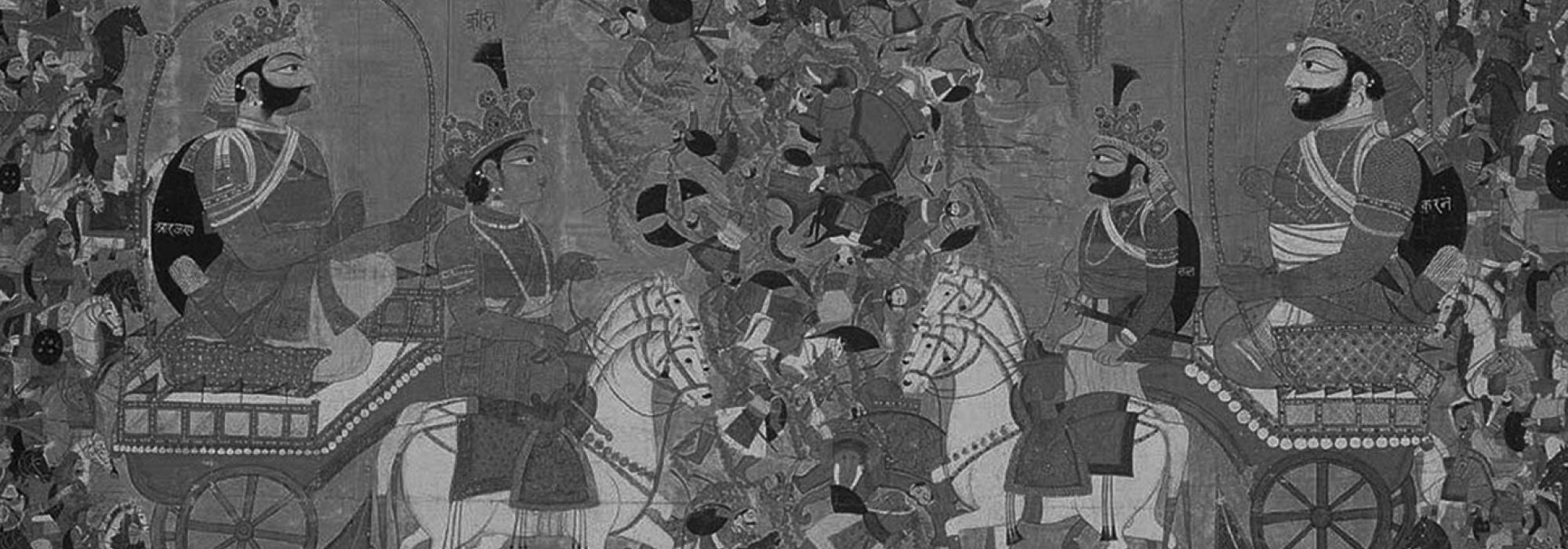There are a few rare individuals who don’t have a ‘formative age’ – they seem to be born complete. They are born with wisdom. They don’t require an internal evolution, for they are already evolved. They don’t need any enhancements. Krishna is one such person. While Krishna’s childhood antics are described in detail, we don’t know his thought process during his early years. What we can see, however, is that right from the start he was one who embraced life with its ups and downs. He accepts life choicelessly; good and bad outcomes don’t bother him (BG 2.50).
There is an interesting episode in the Bhagavata Purana where Krishna’s companions ask him for advice on living. He immediately brings their attention to the tress around them (BP 10.22.32-35). He tells them:
पश्यतैतान् महाभागान् परार्थैकान्त जीवितान् |
वातवर्षातपहिमान् सहन्तो वारयन्ति नः ||
Look at these fortunate trees
that live solely for the sake of others!
They protect us from
wind, rain, heat, and snow.
अहो एषां वरं जन्म सर्वप्राण्युपजीवनम् |
सुजनस्येव येषां वै विमुखा यान्ति नार्थिनः ||
What a great birth it is to be a tree that supports
all beings, just like the great people.
None who approaches them
will return disappointed.
पत्रपुष्पफलच्छायामूलवल्कलदारुभिः |
गन्धनिर्यासभस्मास्थितोक्मैः कामान् वितन्वते ||
Leaves, flowers, fruits, shade,
roots, bark, wood, fragrance,
sap, ashes, pulp, and shoots –
they give us everything we desire.
एतावज्जन्मसाफल्यं देहिनाम् इह देहिषु |
प्राणैरर्थैर्धिया वाचा श्रेय आचरणं सदा ||
Our life, wealth, intelligence, and speech
must always be for the welfare of all.
Only then our life
becomes meaningful and worthwhile!
Even at that tender age, he was able to give a simple and powerful message of living a life of goodness. We can compare this with what he says in the Gita about brahman (BG 13.12-17). He gives a sophisticated explanation on what he had earlier said in simple words as an eight-year-old.
Soon after his birth, his father Vasudeva brought him to Gokula and left him with Nanda. It was only when Krishna was about thirteen that he learnt the truth about his birth from Akrura, when he brings Kamsa’s message (BP 10.38-44 speaks about Krishna’s journey from Gokula to Mathura). Though he is a young lad, Krishna neither feels remorse that his parents are languishing in jail nor does he feel undue joy of having discovered his ‘real’ parents. His feelings towards his foster parents don’t change. Krishna would shower affection on his biological parents without diminishing for one moment the affection he had for his foster parents. For that matter, everyone in Gokula looked upon Krishna as their own child.
Contrast this with Karna’s discovery of his mother. Karna forever complained about his birth in a family of sutas and learnt the truth about his birth nly in his sixties. Yet, he was so torn between his foster parents and Kunti. He was in a dilemma – should he leave Duryodhana or should he ignore his blood bond with the Pandavas. He was in a state of shock.
Krishna, on the other hand, never complained about the past. He was a prince who ended up growing up among cowherds. He doesn’t once lament about it. He makes the best of his situation. He stands firm in the face of the pleasant and unpleasant situations that he encounters. He neither hates nor indulges, he neither worries nor complains. He stands unperturbed, detached. He smiles at both the good and the bad. These are the traits that he extols in the Gita as well (see for example, BG 2.57, 12.17, 14.24-25).
To be continued...











































Comments